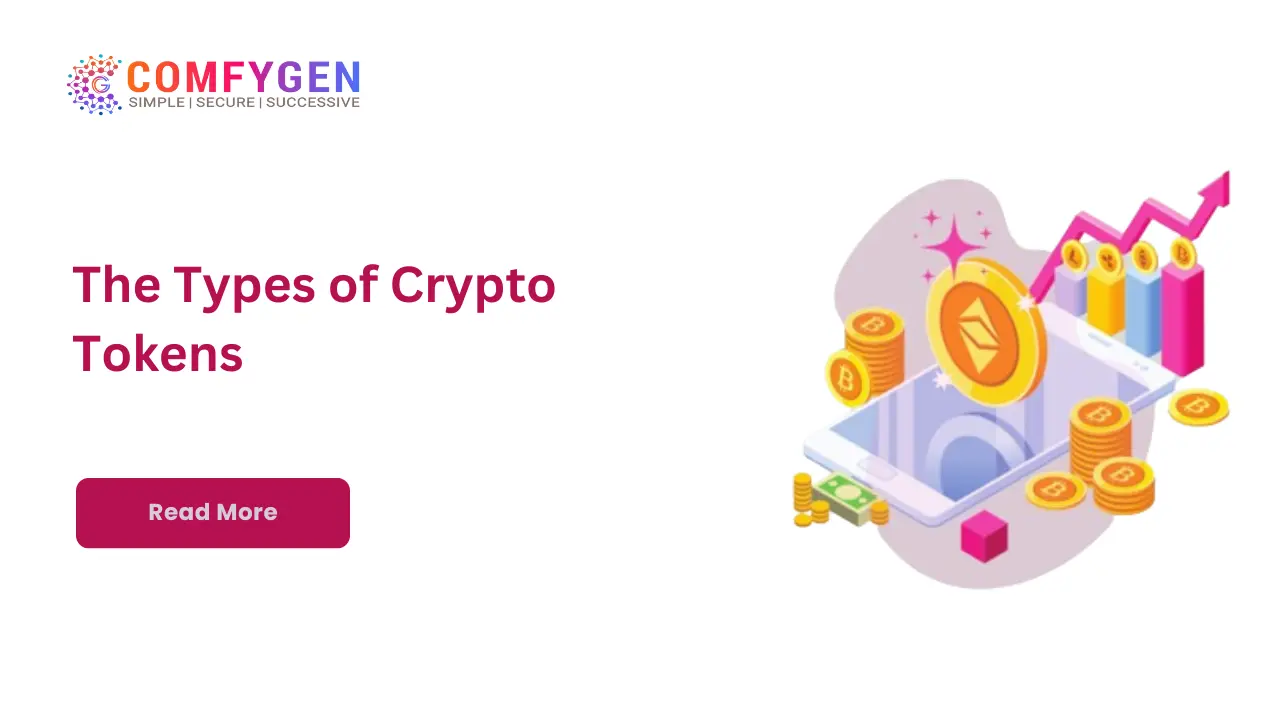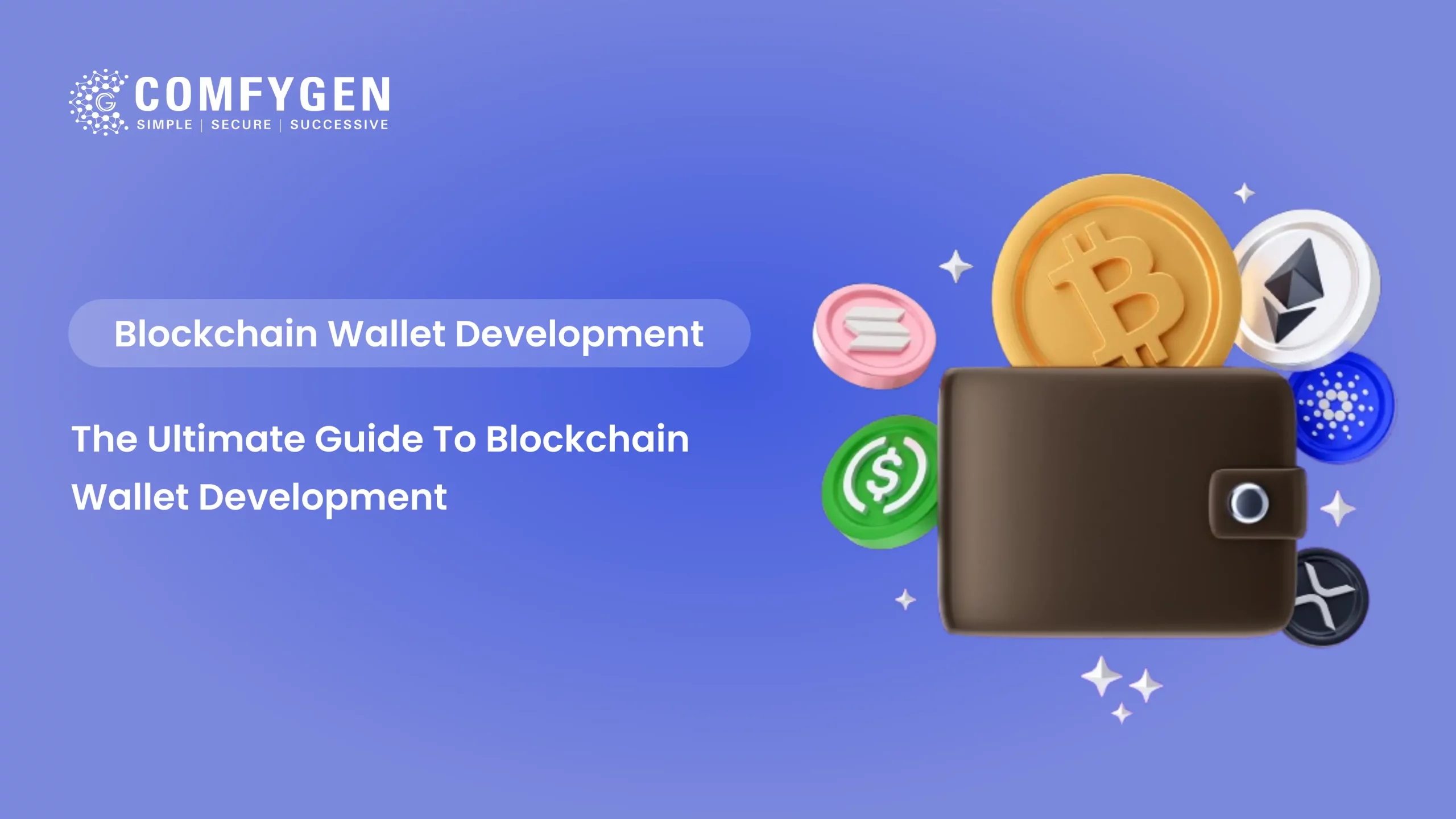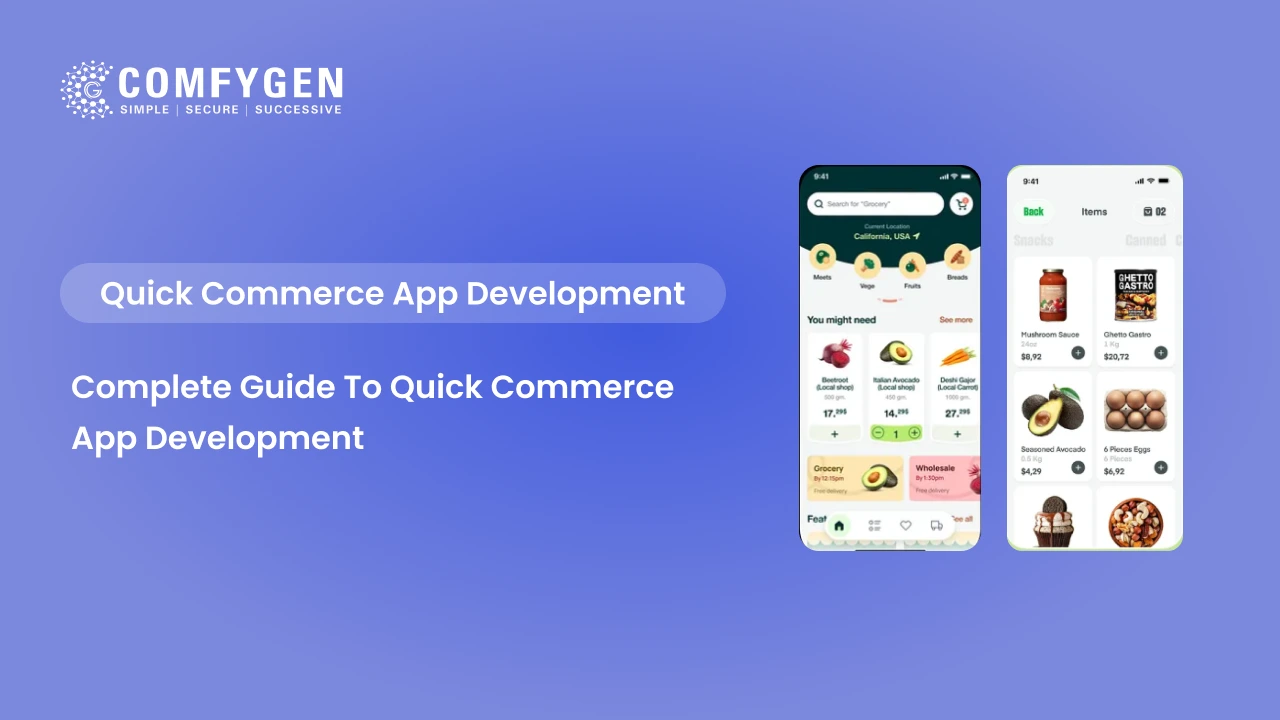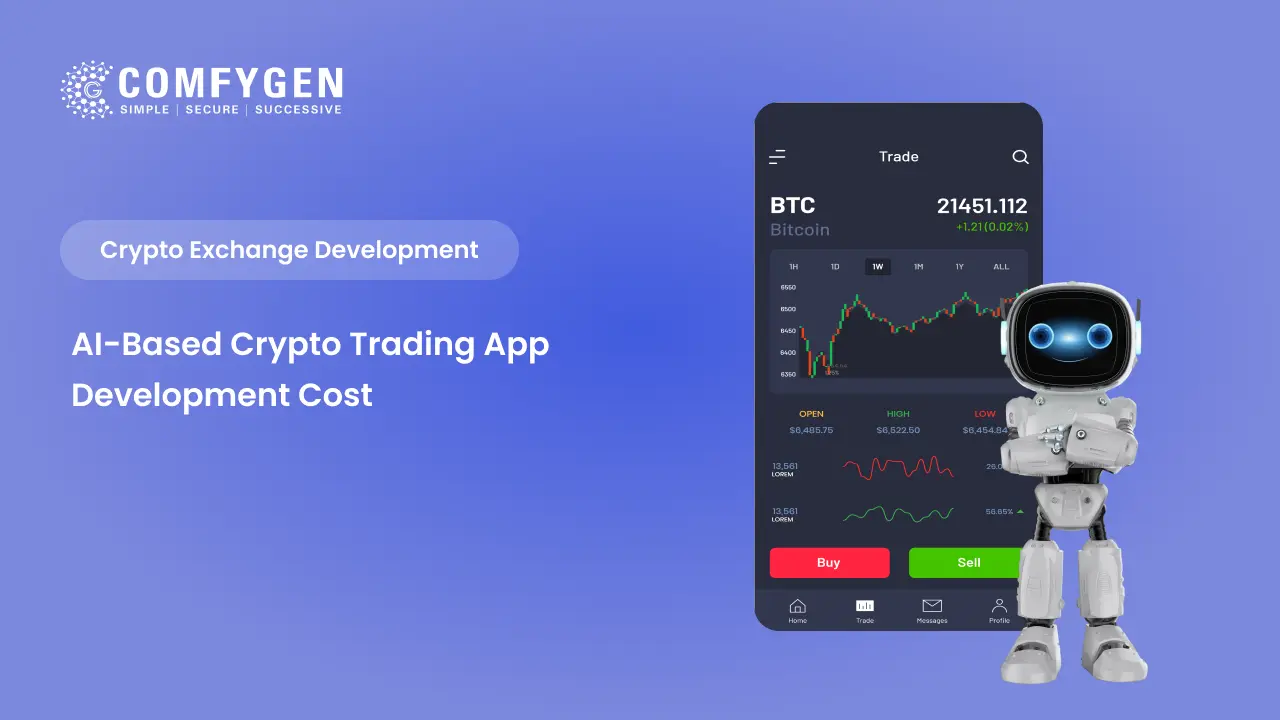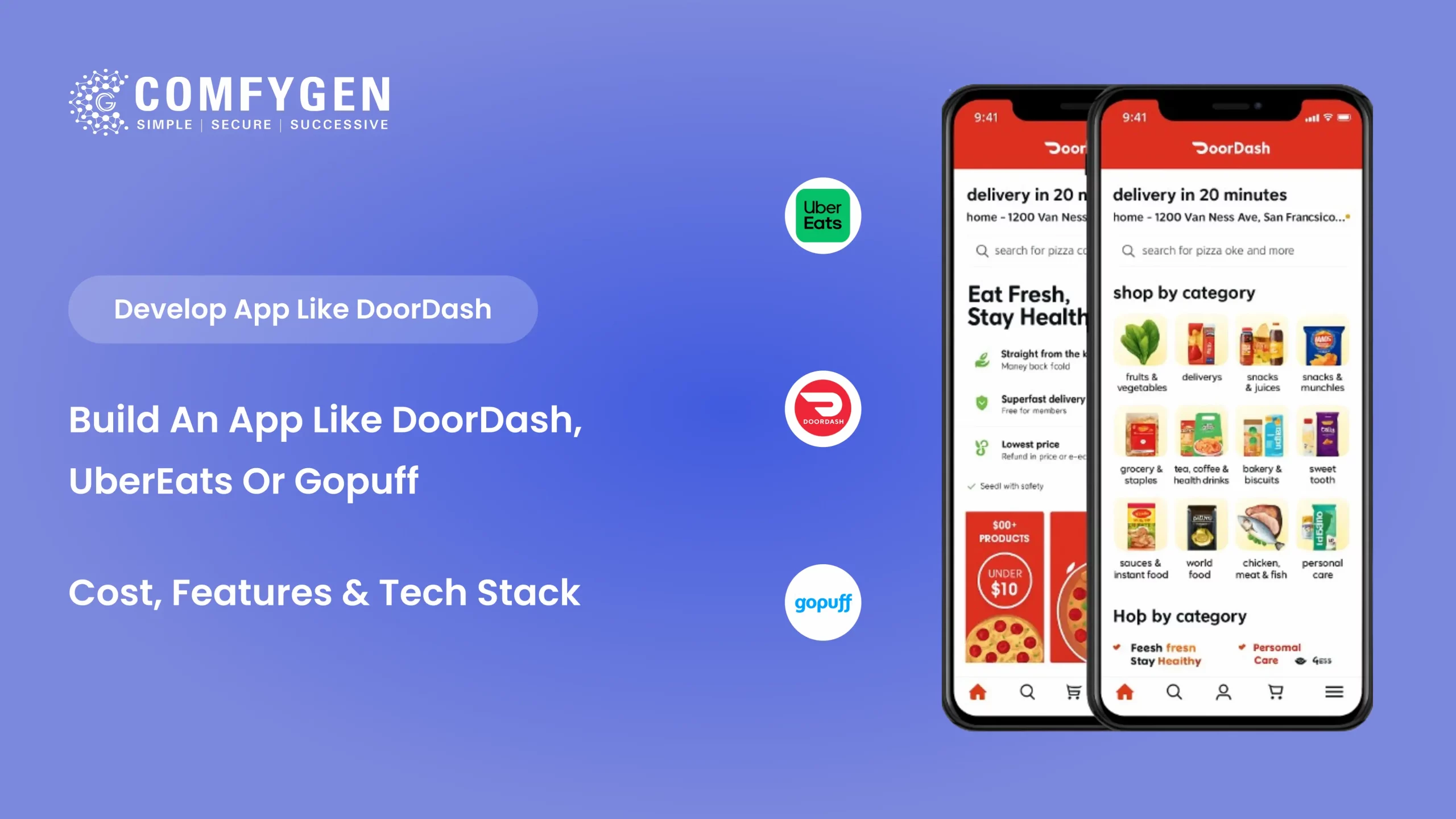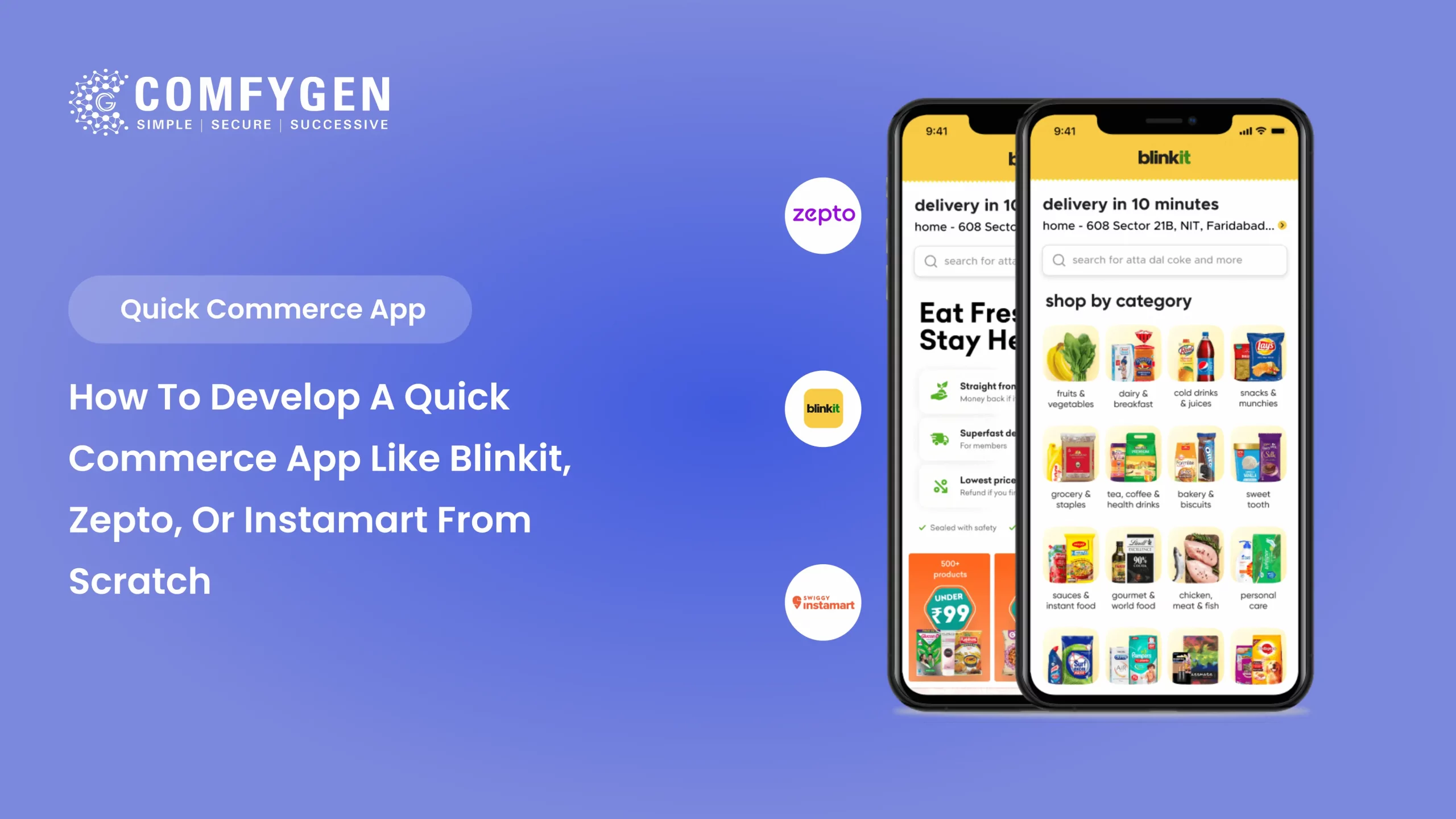The Types of Crypto Tokens
Crypto tokens come in various forms. In this article, we will explore the types of crypto tokens in whole detail. Every crypto token provides unique functions within the blockchain. Security tokens represent ownership in real-world assets like stocks or real estate that provide investors with a stake in traditional markets with the benefits of blockchain technology.
Governance tokens allow support decision-making power within decentralized independent organizations (DAOs) that allow them to vote on protocol changes or project developments. NFT tokens represent ownership of unique digital assets that extend from digital art to virtual real estate using blockchain’s stability to certify legality and ownership. Let’s start to know about the types of crypto tokens.
Market Stats of Crypto Tokens
The crypto token market currently stands at a staggering $2.43 trillion, reflecting a -2.03% and an impressive 104.9% change compared to a year ago. Bitcoin remains dominant with a market cap of $1.24 trillion representing 50.83% of the total market. With a -3.28% change in market cap and a 3.56% decrease in total market volume which now stands at $65.91 billion.
The volume is recorded at $6.1 billion, contributing 9.26% to the total market volume within the decentralized finance (DeFi) development sector. Stablecoins maintain their notability with a $60.16 billion volume that represents 91.27% of the total crypto market volume.
In terms of specific token performance, Bitcoin (BTC) is priced at $5,390,000 with a change of 203,654, Ethereum (ETH) stands at $271,000.0 with a change of 7,485.0, USDT Tether USD trades at $89.98 with a decrease of -0.46 and Binance Coin (BNB) is valued at $50,080.07 which experiencing a change of 570.07.
These figures underscore the ongoing volatility and significant growth of the crypto token market highlighting Bitcoin’s suffering authority and the increasing notability of DeFi and stablecoins.
Want To Hire Crypto Token Developer
Understanding Crypto Tokens
The crypto token is a representation of an asset or interest that has been developed on an existing cryptocurrency’s blockchain that is different from cryptocurrencies as the native asset of blockchain development. These digital assets play a central role in the complex cryptocurrency field and blockchain technology that provides different functionalities within decentralized applications. Crypto tokens allow a broad spectrum of use cases and are typically generated through ICOs or token sales from currency and utility to ownership rights, exchanged for cryptocurrencies like Bitcoin or Ethereum Blockchain. Understanding the various types of crypto tokens—utility tokens, security tokens, stablecoins, governance tokens and NFT tokens is compulsory for collaborators because they shape the landscape of decentralized finance development, digital ownership and Web3 innovation.
How Crypto Tokens Work
Crypto tokens while not legal serve complicated roles within blockchain that extend from facilitating transactions to representing ownership support or serving economic functions similar to legal tender. Governed by smart contracts and cryptographic protocols, these tokens encrypt rules and functionalities into self-executing contracts that make sure transparency and security across blockchain networks. Recorded transactions on the blockchain development services provide fixed records while cryptographic signatures verify ownership that qualifies secure and tamper-proof transactions with various types like utility, security, or NFT. Crypto tokens operate decentralized applications, peer-to-peer transactions and emergent digital economies that realize the transformative potential of blockchain technology.
The Role of Crypto Tokens in The Blockchain
Crypto tokens based on the soul of blockchain technology are digital assets representing value within blockchain ecosystems. Their versatility qualifies a range of functions from facilitating transactions and storing value to granting access to services and applications. They are governed by smart contracts and cryptographic protocols. these tokens serve as the basis of decentralized networks and applications that authorize ownership representation, voting rights and dividends within decentralized projects and real-world asset tokenization on blockchain development. Moreover, they realize economic roles similar to traditional currencies that act as units of account and stores of value within digital economies.
Through mechanisms like staking and capitulate farming, crypto tokens activate network participation, encourage community engagement and support network security. Ultimately, crypto tokens stand as important elements operating revolution, decentralization and democratization across different industries and applications within the blockchain ecosystem.
Types of Crypto Tokens
Types of crypto tokens include utility tokens which grant access to a specific product or service within a blockchain network. Security tokens represent ownership of real-world assets and may offer dividends or profit-sharing rights. NFT token are unique digital assets, often used for digital collectibles, art, or gaming items. Platform tokens maintain a stable value by fix to fiat currencies like USD.
Security Tokens
A security token works as a two-factor authentication device that verifies user identity for physical or digital access. While physical tokens grant access to restricted areas, digital security tokens represent ownership rights or asset value on blockchain development services. Created through crypto token development processes these security tokens digitize real-world assets like real estate and stocks which authorize global trading and conformity with securities regulations. While still awaiting market availability. Security tokens promise increased liquidity and efficiency compared to traditional markets alongside strict regulatory conformity calculations like KYC and AML. Security tokens offer a bridge between the physical and digital fields with their transformative potential in asset ownership and access control that increases security and accessibility in the financial and authentication sectors alike.
Utility Tokens
A utility token works as a means to access specific products or crypto token development services within a blockchain ecosystem that is definite from security tokens which offer ownership stakes. These utility tokens function to activate user engagement within decentralized networks that often provide rewards or discounts for utilizing network services. Operating on their own blockchain, utility tokens represent a form of digital coupon fixable for discounted fees or exclusive access. Examples like Ethereum’s Ether (ETH) and Binance Coin (BNB) illustrate how utility tokens drive network participation while extracting value from their utility within decentralized applications and platforms that showcase their central role in encouraging ecosystem growth and comfort in decentralized economies.
Platform Tokens
Platform tokens that are integral to the functionality of Dapp development built on blockchain networks provide essential support for various operations within their respective ecosystems. Security tokens indicate legal ownership of physical or digital assets while transactional tokens act as units of account for goods and services exchanges. Platform tokens often referred to as utility tokens are native digital assets essential to choose a blockchain platform that facilitates access to services that cover transaction fees and authorize governance participation. Their value stems from their utility and demand within the ecosystem, granting users incentives like discounts, rewards or exclusive features. Ethereum’s Ether (ETH) and Binance Coin (BNB) exemplify platform tokens, utilized for executing smart contracts, suffer transaction fees and enjoy benefits within their respective platforms. Through motivating user engagement and supporting ecosystem growth platform tokens serve as fundamental drivers of decentralized network expansion and development.
Payment Tokens
Payment tokenization increases security in transactions by replacing sensitive payment information with unique tokens, safeguarding against data breaches and fraud. These randomly generated tokens securely access and transmit customer credit card details without storing any sensitive data that make sure a safe payment experience. Payment tokens, a subset of cryptocurrencies, revolutionize financial transactions by authorize fast, secure, and indefinite peer-to-peer transfers of value without intermediaries like banks. Examples like Bitcoin (BTC) and Ripple (XRP) exemplify the efficiency and transparency of payment tokens. Enhance their central role in reshaping global payment systems and encourage financial inclusivity.
Governance Tokens
Governance tokens cryptocurrency authorize supporters to actively engage in on-chain governance for crypto projects thereby affect their future path. These governance tokens facilitate voting on proposals and decision-making processes central for decentralized autonomous organizations (DAOs) and similar decentralized governance structures. They play a fundamental role in decentralizing decision-making within DAOs encourage community involvement and make sure consensus-driven governance.
Non-Fungible Tokens (NFTs)
Non-fungible tokens (NFTs) represent unique assets token development through blockchain technology. Every significance a distinctive identification code generated from metadata via encryption functions. These tokens stored on blockchain networks works as immutable digital certificates of ownership and originity for various assets. whether digital or physical. NFTs encompass a wide range of assets from art pieces to digital collectibles stored separately from the tokens themselves. This native link between the token and its associated asset provide NFTs with unparalleled uniqueness and value. The NFT market has experienced exponential growth attracting interest from creators, collectors and investors alike that operate by high-profile auctions and collaborations. Examples li CryptoPunks and NBA Top Shot underscore the diversity and potential of NFT token development that offering creators new path for monetization and collectors the chance to own rare and exclusive digital assets that shaping a vibrant and dynamic digital asset ecosystem.
Token Standards
Token standards establish the framework for smart contracts to execute fundamental functions within blockchain protocols that enabling crypto developers to create their own cryptocurrency token development with standardized interfaces and features. ERC-20 token development defines fungible tokens on Ethereum that make sure smooth interoperability and liquidity. ERC-721 introduces non-fungible tokens that authorize unique digital ownership and scarcity. ERC-1155 merges ERC-20 token and ERC-721 features that providing versatility for multi-token contracts and efficient asset management on the Ethereum Blockchain Development platform.
ERC-20
- Overview and History
ERC-20 token standard creating and utilizing smart contracts on the Ethereum blockchain that fixed in 2015 under the Ethereum request for opinion framework. It has become the main standard for fungible tokens on Ethereum that facilitating the creation of various marketable assets which including cryptocurrencies, loyalty points and material. - Benefits
Interoperability: ERC-20 tokens are peaceful with a wide range of Ethereum wallets, exchanges and smart contracts that make sure perfect interoperability.
Streamlined Development: The standardization of ERC-20 token development simplifies token creation and making it easier for crypto token developers to launch token projects.
Liquidity: ERC-20 tokens are highly liquid assets who easily traded on cryptocurrency exchange development that increasing market liquidity.
Widely Adopted: ERC-20 has obtain general affecting across diverse industries and applications providing innovation within the Ethereum ecosystem. - Limitations
Lack of Native NFT Support: ERC-20 tokens are exchangeable and do not naturally support non-fungible assets and limiting their use cases primarily to fungible tokens.
Weaknesses: Smart contracts implementing ERC-20 have been unsafe to security utilize that leading to significant losses and hacking incidents
Scalability Challenges: ERC-20 transactions may face scalability issues and higher gas fees through periods of network stuffing that impacting user experience.
Regulatory Uncertainty: Regulatory inquiry and conformity requirements create challenges for ERC-20 token issuers and users.
Limited Functionality: ERC-20 tokens have limited functionality differentiate to more advanced token standards like ERC-721 and ERC-1155.
Also Read: How Much Does It Cost To Build Erc 20 Tokens?
ERC-721
- Features and Usage
ERC-721 is a non-fungible token standard on Ethereum that allows for the creation of unique tokens representing definite digital or physical assets. It authorize ownership tracking origin verification and the creation of digital shortage that transform digital ownership and content creation. - Distinction from ERC-20
ERC-20 tokens and ERC-721 tokens are not interchangeable. Every token is unique and has a definite identifier.ERC-721 tokens are primarily used for representing non-fungible assets like digital art, collectibles, real estate and in-game items that providing new path for creativity and change.
ERC-1155
- Multi-Token Standard
ERC-1155 is a hybrid token standard that combines features of both ERC-20 and ERC-721 that allows for the creation of both fungible and non-fungible tokens within a single contract. It’s developed by Enjin that offers a more efficient and flexible solution for managing diverse asset types on the Ethereum blockchain. - Advantages for Developers and Users
Flexibility: ERC-1155 authorize developers to create multi-token contracts that reducing deployment costs and optimizing gas usage.
Improved Efficiency: The ERC-1155 efficient regularity token development and integration processes that providing significant cost savings and improved efficiency.
Enhanced User Experience: ERC-1155 tokens provide users with intensify control over their digital assets that encourage most and diverse ecosystems within the Ethereum ecosystem.
Want To Develop Crypto Token
Difference Between Crypto Tokens vs. Cryptocurrencies
| Aspect | Cryptocurrencies | Crypto Token |
| Native Currency | Bitcoin, Ethereum, Litecoin, etc | Built on existing blockchains like Ethereum, Binance Smart Chain, etc. |
| Medium of Exchange | Used for exchange of goods, services, or other cryptocurrencies | Represent a wide range of assets, digital or real-world, within specific ecosystems |
| Independent Blockchains | Have independent blockchain networks supporting transactions | Built on existing blockchain platforms |
| Decentralization | Decentralized, not controlled by any central authority | Decentralized, operates on distributed ledger technology |
| Smart Contract | Not applicable (except for platforms with smart contract capabilities) | Created through smart contracts, can have various functionalities programmed |
| Use Cases | Primarily used as currency | Beyond currency, including governance rights, access to services, rewards, ownership of assets, facilitating DeFi transactions, powering DApps, tokenizing assets like digital collectibles or real estate |
Read More: How To Launch Your Own Cryptocurrency: Everything You Must Know
What’s The Development Process of a Crypto Token
The Crypto token development process involves some steps which including conceptualization, design, smart contract development, testing, deployment and ongoing maintenance.
Here given crypto token development some steps:
- Conceptualization: Define the crypto token development purpose and functionality of the crypto token. Decide its use case, target audience and any specific features or attributes it will have.
- Design: Design the token economics which including supply, distribution and any mechanisms like staking, burning, or minting. Choose the crypto tokens standard like ERC-20 token, ERC-721 token, ERC-1155 token and any functionalities the token will require.
- Smart Contract: Smart contract development is code that defines the crypto token behavior and properties. This typically involves programming in Solidity or another blockchain-specific language. You can use existing templates or libraries to efficient development for ERC-20 tokens.
- Testing: Thoroughly test the smart contract for bugs, weaknesses and conformity with the desired functionality. This includes unit testing, integration testing and potentially third-party examine to make sure security and reliability.
- Deployment: Deploy the smart contract to the desired blockchain platform like Ethereum Blockchain, Binance Smart Chain or others. Choose the suitable deployment method and network parameters that considering factors like gas fees and network stuffing.
- Integration: Integrate the token into any applications, platforms, or systems where it will be used. This may involve integrating with crypto wallet development, crypto exchange development, decentralized application development or other services.
- Compliance: Make sure conformity with relevant regulations and legal requirements like Know Your Customer (KYC) and Anti-Money Laundering (AML) policy that depending on the token’s use case and authority.
- Launch: Announce the token launch to the community which including details like tokenomics, distribution and any associated events or promotions. Implement strategies for liquidity provision, market-making and community engagement.
- Maintenance and Updates: Monitor the token’s performance, mark any issues or bugs that arise and implement updates or improvements as needed. This may include community governance processes for proposing and voting on changes to the token protocol.
- Community Engagement: Encourage an active and engaged community around the token that providing support, education and transparency to users and collaborators. Continuously communicate updates, developments and future plans to maintain trust and momentum.
Read More: How Much Does It Cost to Make a Crypto Wallet App?
How Much Does it Cost to Develop a Crypto Token?
The cost of developing a crypto token varies widely based on factors like token complexity, desired functionalities, crypto token development company and development team expertise. Simple ERC-20 token deployments may start at a few thousand dollars while more complex tokens with custom features and advanced functionalities can range from tens of thousands to hundreds of thousands of dollars.
Also expenses for security audits, legal conformity, marketing, community building and exchange listings contribute to the total development cost which can fall within the range of $38k to $211k who depending on the project’s requirements and objectives.
Final Words
The types of crypto tokens reflects the innovative potential of blockchain technology, providing a functionalities range and use cases. Utility tokens powering decentralized applications to security tokens representing real-world assets and governance tokens facilitating community governance. Every crypto token type serves a unique purpose in the evolving digital economy. As regulatory frameworks continue to develop and market dynamics shift, understanding the difference between these token types becomes increasingly important for investors, developers and expert navigating the complexities of the crypto space. Ultimately, the interplay between these token types will shape the future of finance, technology and decentralized governance.
Quick Contact Us :
Call/WhatsApp: +91 958-786-7258
Email: [email protected]
FAQs
How Many Crypto Tokens Are in The Market Right Now
There are varied evalute of the number of cryptocurrencies in extant with some sources suggesting around 20,000 tokens. However, a significant portion of these tokens is inactive or discontinued. The cryptocurrencies development processes is relatively accessible that contributing to the proliferation of new tokens. Despite the large number of tokens, the market is dominated by a select few with the top 20 cryptocurrencies accounting for approximately 90 percent of the total market capitalization.
How to Burn Crypto Tokens?
Burning crypto tokens is a process where tokens are permanently removed from circulation, thereby increasing their scarcity. This is achieved by sending the tokens to a wallet address that cannot be accessed that known as a "burn address" or "black hole." Once the tokens are sent to this address, they become inaccessible and cannot be recover or used. This method helps control inflation, boost token value and demonstrate commitment to token holders and the community by reducing the overall token supply.
What is The Purpose of Crypto Tokens?
Crypto tokens serve complex roles in increasing security and functionality within blockchain ecosystems. Beyond their traditional functions as digital assets or currencies, tokens act as barriers against hackers by implementing two-factor authentication measures that support user data and corporate resource protection. These security features like physical tokens and smartphone applications verify user identity, mitigating risks associated with password-based authentication. Also, crypto tokens authorize diverse functionalities including transaction facilitation, ownership representation, decentralized application access, governance participation and rewards distribution, encourage innovation, decentralization and value exchange within blockchain networks.

Mr. Saddam Husen, (CTO)
Mr. Saddam Husen, CTO at Comfygen, is a renowned Blockchain expert and IT consultant with extensive experience in blockchain development, crypto wallets, DeFi, ICOs, and smart contracts. Passionate about digital transformation, he helps businesses harness blockchain technology’s potential, driving innovation and enhancing IT infrastructure for global success.

